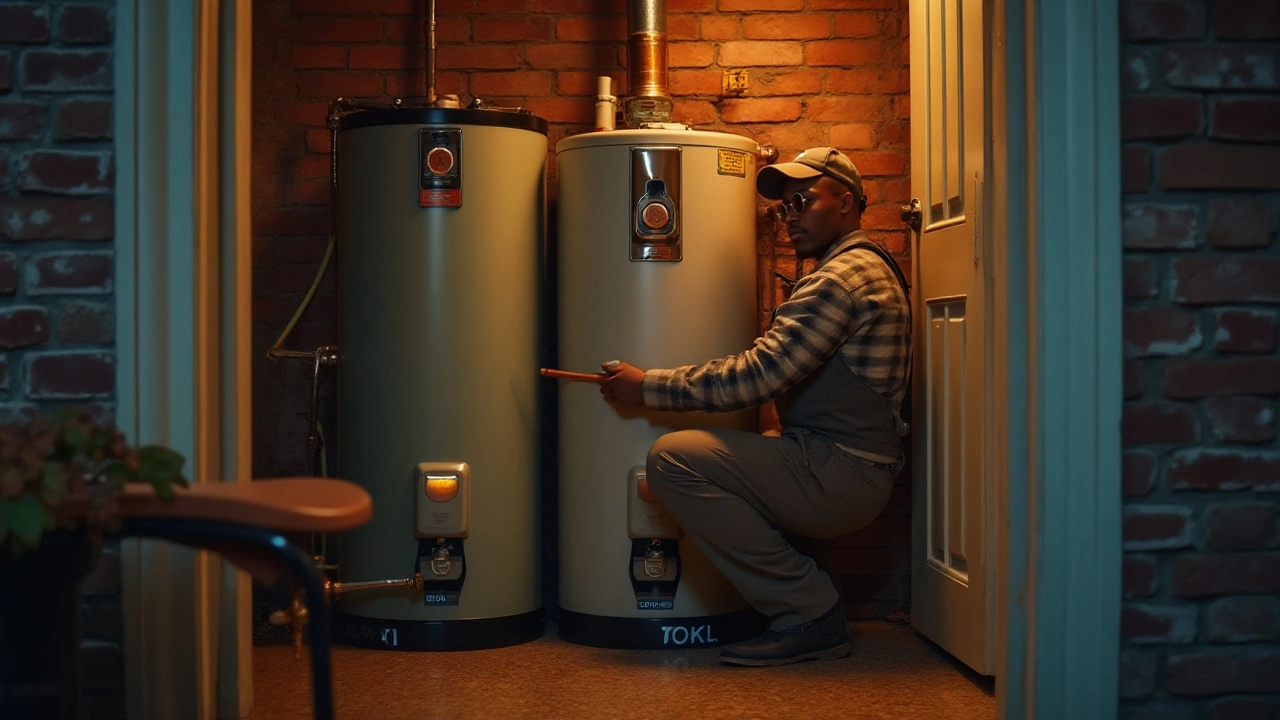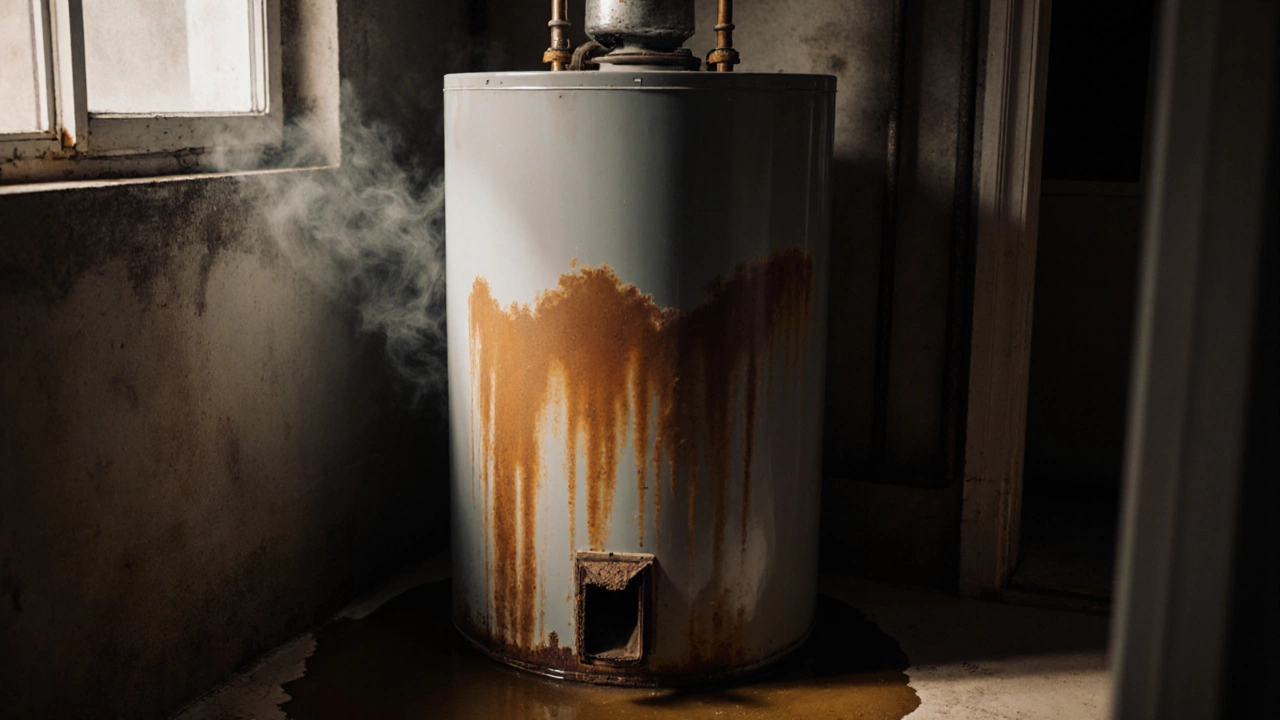Isn't it just the worst when you step into the shower expecting a blast of warmth, and instead you're hit with a stream of icy water? Could be a sure sign that something's up with your hot water heater element. But before you call in reinforcements, let's see if we can figure out if that pesky element is the culprit. Spotting early signs can keep you from diving head-first into a cold-shower nightmare.
The first clue might be inconsistent water temperatures. Maybe it's hot one day and lukewarm the next. That's a hint that the heater element might not be doing its job right. If you notice slow heating or no hot water at all, those are more surefire signals. It's like your heater's trying to say, 'Help!' in its own steamy language.
Identifying the Signs
So, you're suspecting a faulty water heater element? A cool shower on a cold morning can make anyone suspicious. But how do you pinpoint the problem to the hot water heater element itself? Let's break down the clues.
The first telltale sign you might notice is the temperature of your water. If it's hot one moment and not the next, that's your heater's way of sending an SOS. But if you're barely getting a whisper of warmth, it's a stronger vote for the heater element being the troublemaker.
If your water just doesn't heat up as it used to, gather some more facts. Listen closely for any strange noises coming from your tank. Popping or hissing sounds can signal a buildup of sediment, which might mean the element's getting too hot and isn't happy about it.
Another red flag is a visible increase in your energy bill. If your heater element is on the fritz, it might be working overtime, chugging electricity without giving you the hot water in return.
Keep an eye out for other small signs like water taking a longer time to heat or running out of hot water faster than usual. These might not be as obvious but combined with the others, they paint a clearer picture.
If you're seeing any of these symptoms, it's likely your water heater is trying to tell you something's wrong. Jumping to conclusions isn't necessary, but checking these indicators can save you a dip into unexpected cold showers.
Testing the Element
Alright, you've spotted some signs that your hot water heater element is acting up. Now it's time to play detective and test it for real. But don't worry, you won't need a Ph.D. in engineering—just a few tools and a bit of patience.
First up, make sure you cut the power to your water heater. This isn't just for safety; it's a must. Head to your circuit breaker and switch off the one labeled for the heater. Trust me, you don't want to mess with electricity.
Next, grab a screwdriver and remove the access panel on your water heater. Depending on your model, there might be an insulation pad you need to peel back before you reach the element. Don't tear it—just gently fold it back.
Now, you're going to need a multimeter. This handy tool measures electrical resistance and will tell you if your element is dead or alive. Set the multimeter to the 'Ohms' setting. You're looking for a reading between 10 and 30 ohms. If it’s substantially higher or showing no reading at all, that element is toast.
Here's a quick rundown of the steps:
- Turn off the power to the water heater.
- Remove the access panel and insulation to reveal the element.
- Set your multimeter to the 'Ohms' setting.
- Touch each terminal with the multimeter probes.
- Check the reading. 10-30 ohms is good; zero or really high isn’t.
Keep in mind, if both elements seem fine but you're still having issues with your water heater, the thermostat or something else might be the problem. But hey, at least we crossed one thing off the list!

Common Causes of Failure
Alright, let's talk about why your hot water heater element might be throwing in the towel. One of the biggest culprits? Mineral buildup. If you're dealing with hard water, chances are you've got some serious scale making its home inside your tank. These mineral deposits can coat the element and keep it from heating water properly.
Another troublemaker can be a faulty thermostat. The heater element relies on the thermostat to tell it when to heat up and when to chill out. If the thermostat goes rogue, the element might not warm up when it's supposed to, leaving you shivering instead of singing in the shower.
- Corrosion: Over time, corrosion can eat away at the element, especially if the anode rod in your heater isn't doing its job to protect everything else. Once corrosion sets its teeth, it's only a matter of time before the element gives up.
- Electrical issues: Sometimes it's just a simple electrical problem. Maybe a wire's come loose, or there's a short circuit. Either way, the element won't function right if the power's not getting to it.
And guess what? If you've got an older water heater, wear and tear might just be taking its toll. Elements don't last forever, and with enough time, they might just decide they've had enough. Regular maintenance and checking for signs of trouble can help extend their life.
When to Call a Professional
Sometimes, even if you're pretty handy, there's nothing wrong with throwing in the towel and calling a pro, especially with tough household tasks like water heater repair. So, when should you dial up the professionals? Let's break it down.
If you've checked the basic things like resetting the breaker, and it still seems colder than the Arctic in your shower, it might be time. When your meter shows weird readings while testing the hot water heater element, a professional can give you a clear picture of what's up. This isn't one of those ‘give it a wrench and all's good’ situations if you're not sure.
Here's where it gets a bit technical. If replacing the element itself doesn't do the trick, another part might be the problem. An experienced technician knows how all parts fit together and can spot a hidden glitch. Plus, playing around with electricity and water isn't exactly a perfect match for a DIY project if you're not totally confident about safety.
- If the water heater is relatively new and still under warranty, tampering with it yourself can void that sweet protection it came with.
- Strange noises like popping or crackling sounds from your heater? Yeah, that's a sign to call in someone who knows their stuff.
- If there’s visible rust on the outside or, worse, rust-colored water coming out, that's more than just an element issue. That's something you definitely want a pro to handle.
And for the cherry on top, professionals often save you money in the long run by preventing more significant issues or unnecessary fixes. So sometimes, a cold shower just isn't worth the hassle. Give the pros a shout; they’ve seen it all and fixed it twice.



